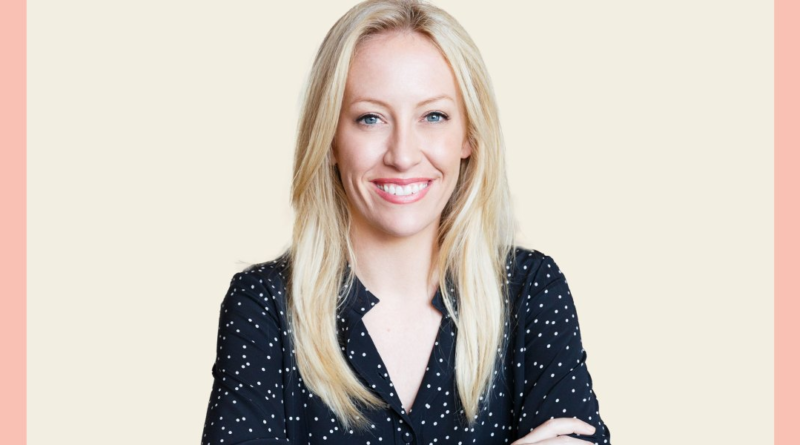Partners, parents, co-founders: Eventbrite’s CEO took the top job after her husband and in the ‘dark room’ of COVID realized she’d ‘forgotten to have a moment of doubt’
There are five members of the Hartz household: Julia and her husband Kevin, their two daughters and their $483 million company—Eventbrite.
The couple launched the business in 2006 alongside their third co-founder—Renaud Visage—with Kevin initially taking on the title of CEO. In 2016 Julia took the reins, just in time to take the company public before she and her team were slammed into the crisis that was the coronavirus pandemic.
While Hartz held the top job that fateful March, she told Fortune titles went out the window as the team pulled together to keep the business above water. For Hartz, that meant making some tough decisions on how many staff the company needed to survive—for her husband it meant dropping his full-time job as an investor and working alongside his wife to keep the company on track.
But four years later the company—built on gathering people in person—has not only survived social distancing and lockdowns, but is flourishing. Indeed, as consumers have rediscovered in-person socializing a new frontier has opened up for Eventbrite: niche hobbies which might even allow visitors to make some romantic connections.
Speaking to Fortune, Hartz reflected on the “exciting but deeply disturbing” experience of being one of the only female founder-CEOs to have launched her business on the New York Stock Exchange, and how the pandemic forced her to get past any shred imposter syndrome she might have felt.
A dark room with no oxygen
At first, Hartz told Fortune in a video interview, she judged herself on “Am I doing it right? What would Kevin do?” Then, “that line of questioning and self-doubt went out the window when COVID happened.”
“Imagine getting stuck in a room that has very little oxygen and every single light goes out, to the point it’s an utter void of darkness. That was like the first two weeks of COVID,” recalled Hartz, who has been named on Fortune’s Most Powerful Women list. “The entire basis of our business evaporated and no one in their right mind could have predicted that. We do all this scenario planning, disaster planning, tabletop exercises—there never once was a scenario when a global pandemic hits and people aren’t actually allowed to gather in a place like the United States.
“In order to get out of that room—that dark room—I had to go on instinct completely. I had to do things that rationally I would never ever imagine doing, and I made a bunch of micro mistakes but the things I got right were really critical. Which was to move quickly, to not let it play out and see what happened, and that meant making a lot of tough decisions.”
That included axing half of the company’s headcount—around 450 people—and hitting the (metaphorical) road to drum up some fresh financing.
With a massive overhaul came the opportunity to rebuild the company with added experience, so Hartz and her senior executive team drew up a one-page draft of how they wanted the reset to go.
“We were dividing conquering and I realized after being in a month of crisis mode that I had forgotten to have a moment of doubt. And I was like ‘Oh, that’s handy I should keep doing this,’” Hartz recalled. “I remember laying on the ground of our home office just thinking ‘If I live through this I’m never going to waste time feeling a lack of confidence.’”
While an ideas overhaul reshaped the company, one decisive factor stayed the same: parity. From the offset Eventbrite wanted the company to “look like the world” and to have a 50/50 gender balance, with Hartz describing her cofounders as “incredible feminists.”
And that hasn’t changed—in 2018 the the Eventbrite board reached 50/50 parity and in 2024 the idea that you have to “see it to be it” is still core to the business.
Hartz explained: “It’s come about very organically. I think if you have that North Star that guides you to build a company that is treating everyone well, gives everybody a place, and never makes anybody look over their shoulder and think: ‘Should I be here?’ then you’re moving in the right direction.”
Fifth family member
While 18 is the age many parents see their kids as grown up and independent, near-two decades in business is no guarantee that its founders can take their eyes off the ball.
For Hartz’s daughters, Eventbrite has become something of a commercial sibling they grew up alongside, understanding that when their parents needed to focus on the business it has been for their family.
During COVID Kevin and Julia were working 20 hours a day, with their home becoming a “village” of people who pitched in to help.
“I have these sweet photos Kevin took of our daughters sleeping on the couch in our office. It was reminiscent of when we started the company and they were a part of that journey as well,” Hartz said. “During that time the girls would serve us dinner—they’d come in dressed as waiters and do little skits and sing songs. I think they knew that levity was really important. I think there’s something really special about having this company be a member of the family in terms of what we prioritize and I hope that they have really fond memories of it.”
That “sweet intimacy” in a “cold, scary time of unknown” also echoed through to Hartz’s relationship with her husband—not only as a life partner, but as a co-founder.
For many, a life partner setting up massive gaming-style screens in your home office may not scream charm but for Hartz it was “the most romantic gesture.”
“I just melted because in one gesture he showed me he was going to drop everything and be a co-founder. It didn’t matter what our titles were, we were going to be side by side. We were shoulder to shoulder for a month making some really difficult decisions—when you’re founders it’s not unlike being parents,” Hartz added.
Eventbrite’s new era
With the pandemic in the rearview, Eventbrite—which has recently increased its engineering footprint in India with gender equity throughout its ranks—and its customers alike are focussed on what’s next. For consumers that entails exploring their niche interests and meeting new people, be it friends or romantic interests.
A recent data capture of people using the Eventbrite platform found that dating and singles events were on the rise “massively”—up three to four-fold. And that doesn’t entail more stereotypical events like speed dating or mixers, it’s happening around activities like classes or hobbies.
Indeed, women in Eventbrite’s survey group said they would prefer to meet someone at a cooking class as opposed to out at a bar.
Hartz added: “I find it so sweet and charming when you think about the dynamic of wanting to get outside of this swiping and algorithmic, programmed matching… to actually being somewhere, doing something you love to do and actually meeting someone through that experience.”
As well as romantic events, sober get togethers are also rising in popularity—even down to reading groups where people are encouraged not to discuss the book, but simply enjoy their novel in silence.
And—in a year of Taylor Swift’s Eras Tour and the Euros football tournament—there’s also plenty of fans looking to enjoy events together.
“We tracked almost 200 Euro viewing parties that already had more sign-ups than the capacity of the first stadium,” Hartz said. “[People were also] doing all sorts of Taylor Swift-themed programming and official non-ticketed events. The vibrancy of events is incredibly high, the creativity is incredibly high, people want to go out and do something that’s unique. That’s propelled by social media, by discovering great events and wanting to share you’ve been somewhere unique that matches your niche interests.”




